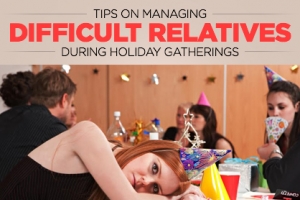Ten Thousand Villages empowers artisans through fair trade
It was the only thing Morium knew how to do. A widow in Bangladesh, she was begging on the street to earn her living. Then she was recruited as part of a group of six women to learn how to make handmade paper, an endeavor that would eventually develop into a small business. Not only did she learn to read and write, she earned enough to send her two daughters to school. Today that cooperative employs about 200 women. She has been able to purchase her own house, complete with a water well and chickens, goats and cows. Her daughter Maya even graduated from medical school and intends to set up practice in her hometown.
Her inspiring story is just one of many for Ten Thousand Villages, a fair trade organization that works to empower tens of thousands of disadvantaged artisans across 38 Third World countries by paying them a fair wage for their wares. Reflecting the artists’ cultural traditions, these handcrafted goods—ranging from baskets and jewelry to textiles and home decor—are then sold in the charity’s network of more than 390 retail outlets as well as online.
“It’s obvious that some of the things we buy, like clothing and food, it’s relatively inexpensive,” Doug Dirks, public relations at Ten Thousand Villages, said. “And that means that the people that were making it in places like Guatemala and Indonesia obviously aren’t getting paid that much. And sometimes they’re not getting paid enough to cover the basic living costs. So the whole fair trade movement has been concerned … if we in the U.S. are getting cheap goods and commodities, maybe we should be concerned about that and when we spend our money, we should be aware about who’s making the product we’re buying and we should care whether or not they get paid enough.”

As one of the oldest and largest nonprofits promoting fair trade, Ten Thousand Villages reaches out to people who otherwise aren’t plugged into the normal trading system. The charity helps these workers to find a market for their goods, at the same time eradicating poverty by giving them enough money to provide for themselves and their families.
“The artisans we buy from really don’t have access to people like Pier One Imports or Pottery Barn or anyone who might be selling and buying those kinds of products,” Dirks said. “They’re in places too remote. They are not connected to a local business that has international connections. So we deliberately look for those kind of folks.”
The way decent income can turn lives around is incredible: housing, clothing, education, healthcare, healthful food. All this adds up to not just a better future for the artisans, but for their entire families. Workers move from desperate poverty to running a successful business.
In a quest to help, however, the organization can’t buy just any product. It has to be one that sells. It has to get customers’ attention as not just having a good price tag, but being a good item.

&ddquo;We’ve found out over the years that we can’t just bring a product to market and say to people that you should buy this product because people in Bangladesh need the income,” Dirks said. “You’ve got to present a product to consumers that they are willing to buy and that they think is worth the money we are asking for it. So you have to do a combination of the do-gooder, fair trade and you also have to do good retail business.”
What this translates into, Dirks says, is saying no to quite a number of artisans.
Wanting to truly be fair to their artisans, the charity enters into a discussion with them of what is a reasonable amount of money for the goods. The point is not to bargain a lower price, of course.
“Quite often we find artisans don’t ask for enough because quite often they’re used to working for very low wages,” Dirks said. “They don’t expect to be able to earn enough to be able to educate their kids or to go to the doctor.”

The organization traces its roots back to 1946 when Edna Ruth Byler went on a trip to Puerto Rico to volunteer and was moved by the extreme poverty she witnessed. One day, she sat down with some farmers’ wives and discovered they were doing embroidery work in hopes of sending their daughters to school.
Finding the work quality and wanting to help, she brought it back to the States, where she began to sell it to her neighbors and friends. It sold so well, she soon sent money in an envelope, requesting more products. She looked up one day to discover her basement was full of goods from all over the world.
Today they are still essentially trying to do the same thing.
For more information or to get involved, visit tenthousandvillages.com.
Tagged in: lux exclusives, charity, nonprofit, philanthropy, artisans, poor, ten thousand villages, fair trade, poverty, 10,000 villages,

Purple Neon/LadyLUX via Ten Thousand Villages



